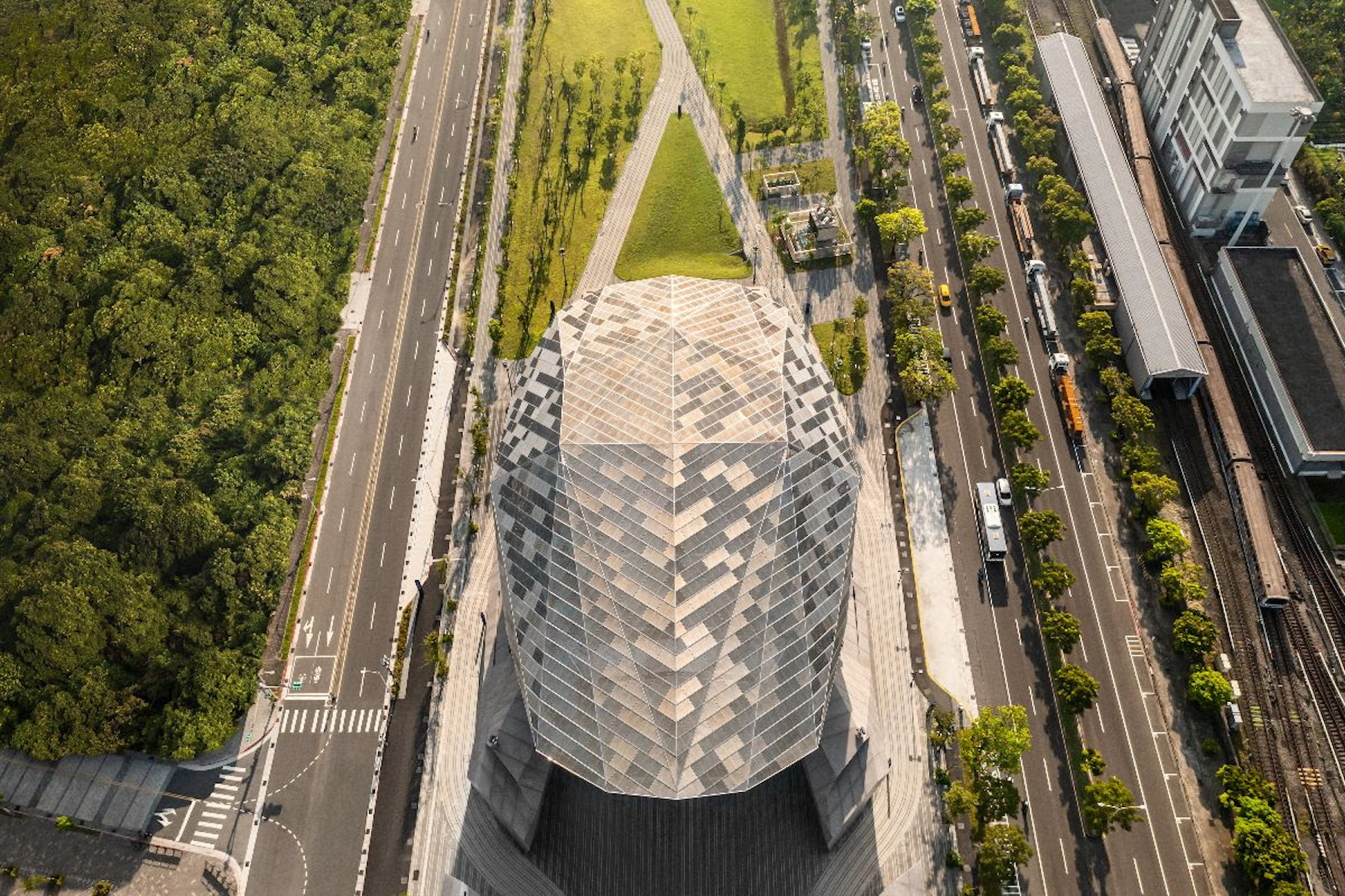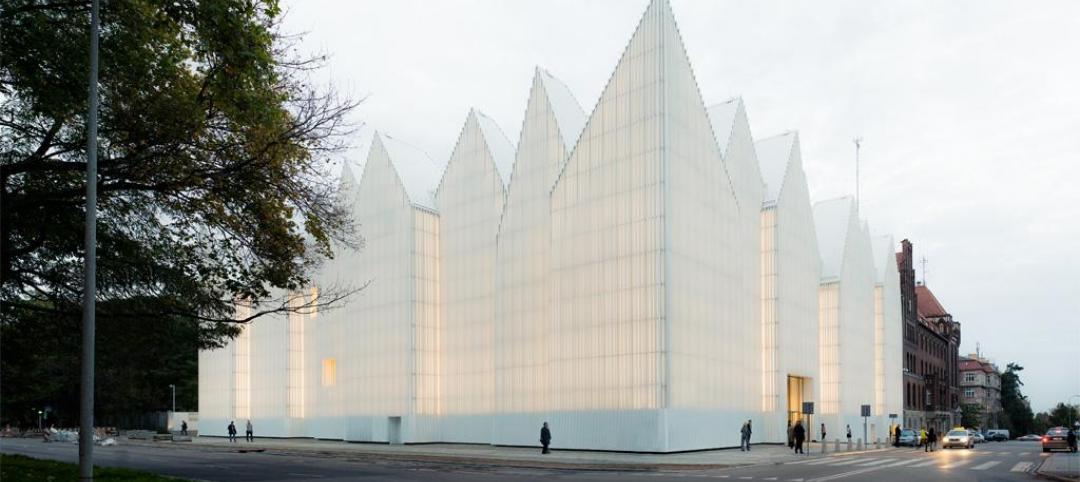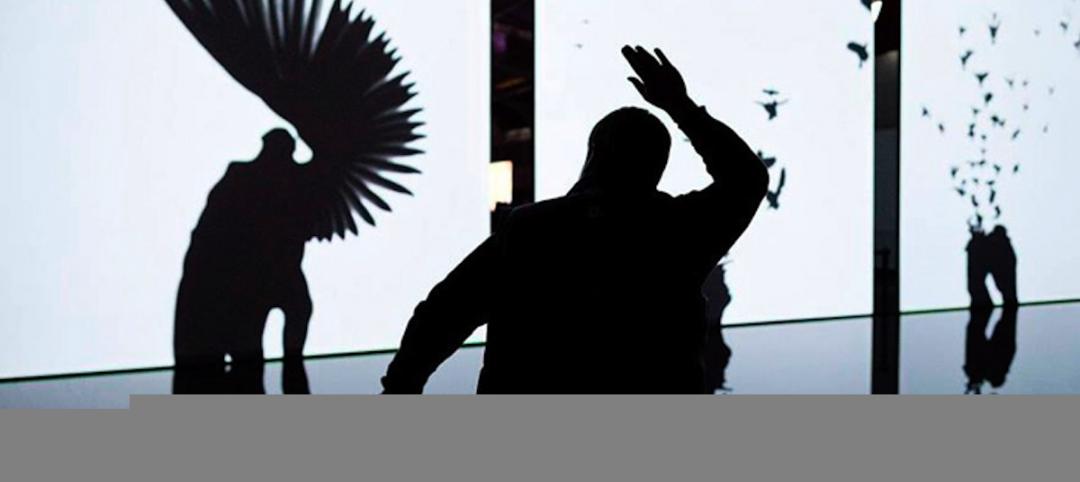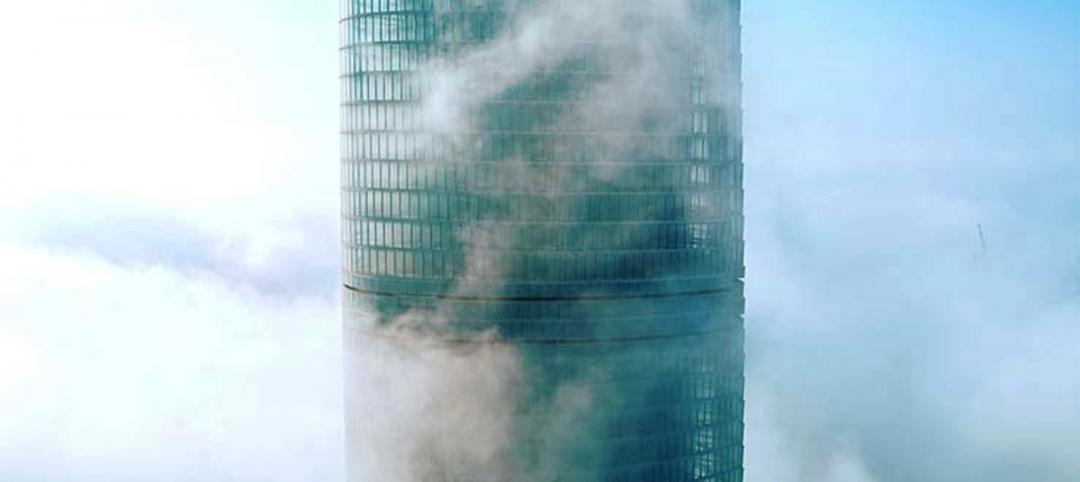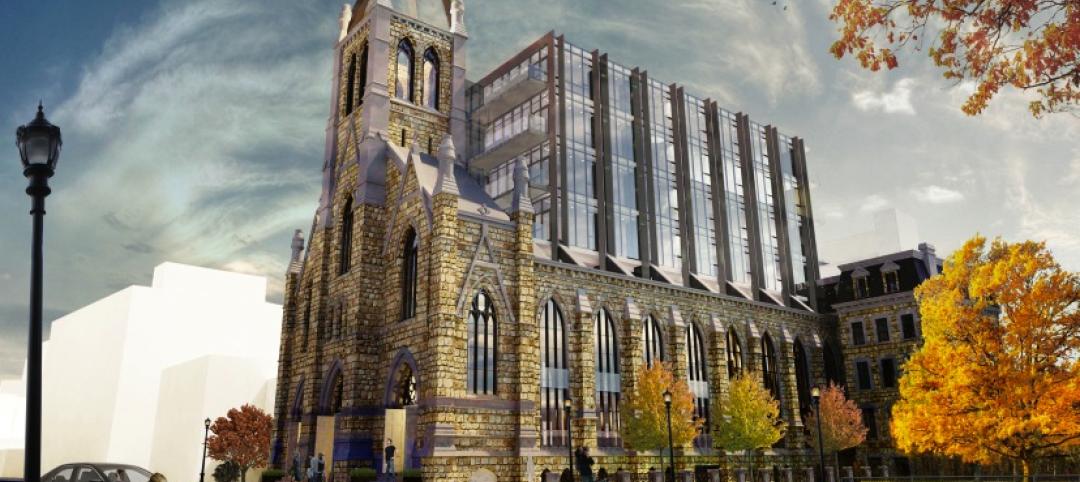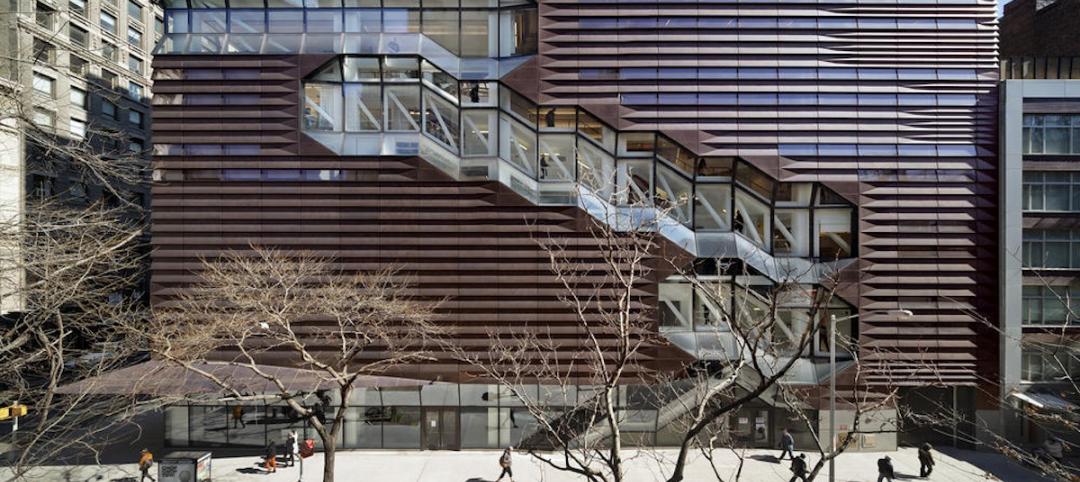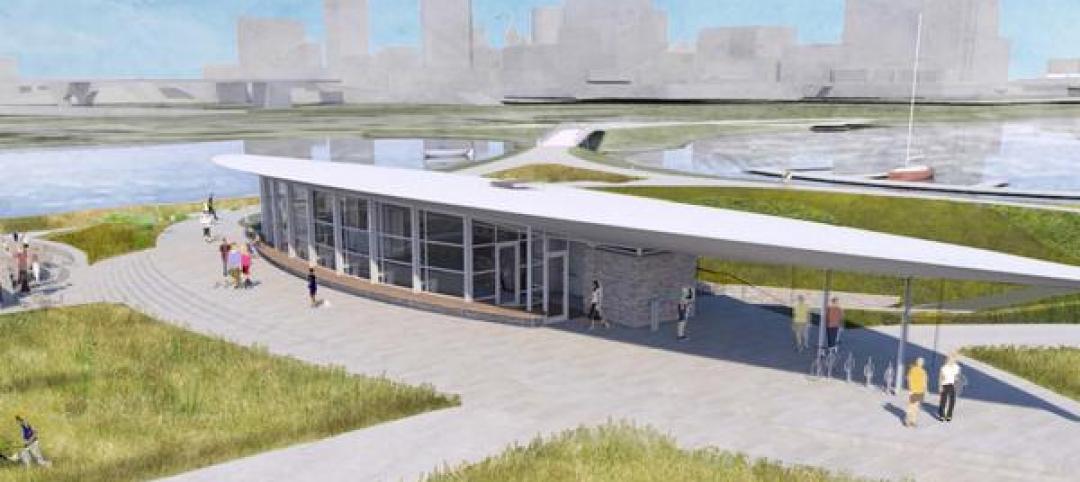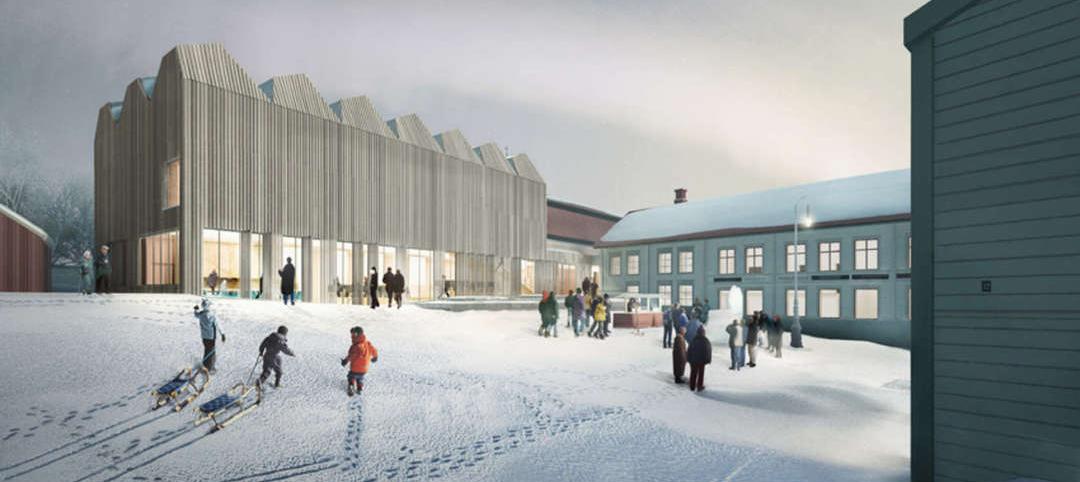RUR Architecture has finished the Taipei Music Center (TMC), turning a 22-acre (9-hectare) site into a new urban arts district. The New York-based firm’s design took over a decade of planning and construction, as it both reflected and helped shape the post-industrial revival of Taipei.
Conceived as a City of Pop Music, the TMC is a hybrid and multipurpose site dedicated to the performance, production, and celebration of Asian pop music. TMC has three main buildings: the Concert Hall, the Cultural Cube, and the Creative Hub. A new elevated public ground bridges the north and south sites, bringing the three buildings together. The building program also includes three live-houses that allow for simultaneous performances and support new talent with intimate concerts.
The project’s centerpiece—the 756,000-square-foot Concert Hall—is designed for both indoor and outdoor performances. Inside, it can seat 6,000 people; outside in the public plaza, it can accommodate several hundred. A faceted double skin, made of an anodized aluminum cladding outer layer and a gypsum wall inner layer, wraps around and encloses the auditorium. The Performance Hall features state-of-the-art technology, from the acoustics and lighting to eco-friendly heating and cooling systems.
The design has interwoven the buildings into the natural surroundings and the city fabric. The expansive geometric volumes are meant to mirror the nearby mountains, connecting the structure with its environment.
Building Team:
Design architect: RUR
Architect of record: Fei and Cheng Associates, Taipei
Structural engineer (schematic design): ARUP, Hong Kong
Structural engineer (detailed design): Supertek, Taiwan
Facade consultant: Meinhardt Façade Technology, Shanghai
Theater, acoustics consultants: ARUP, Hong Kong
Landscape architect: The Environmental Arts Design Company, Taiwan
Lighting consultant: RDG, Taiwan
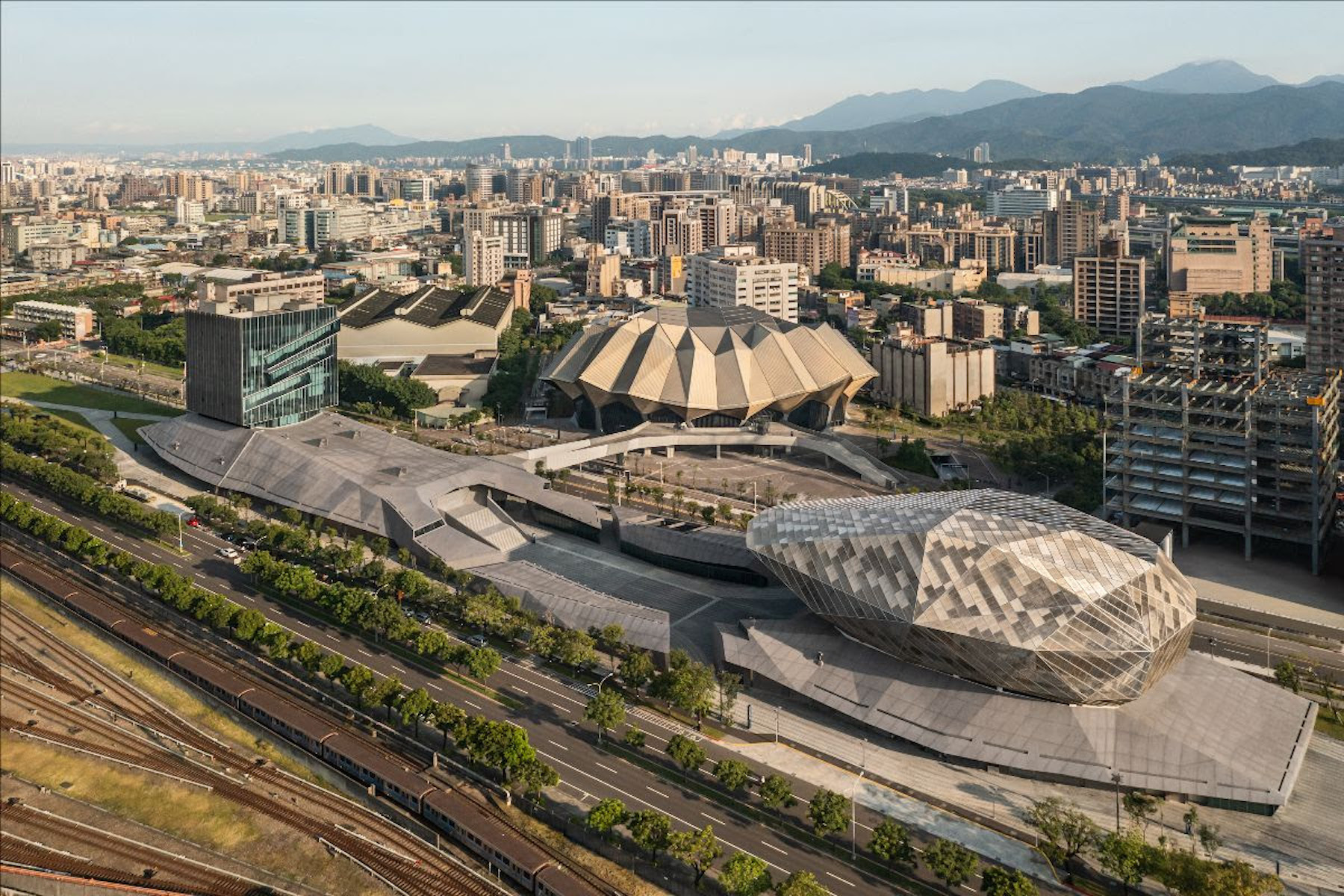
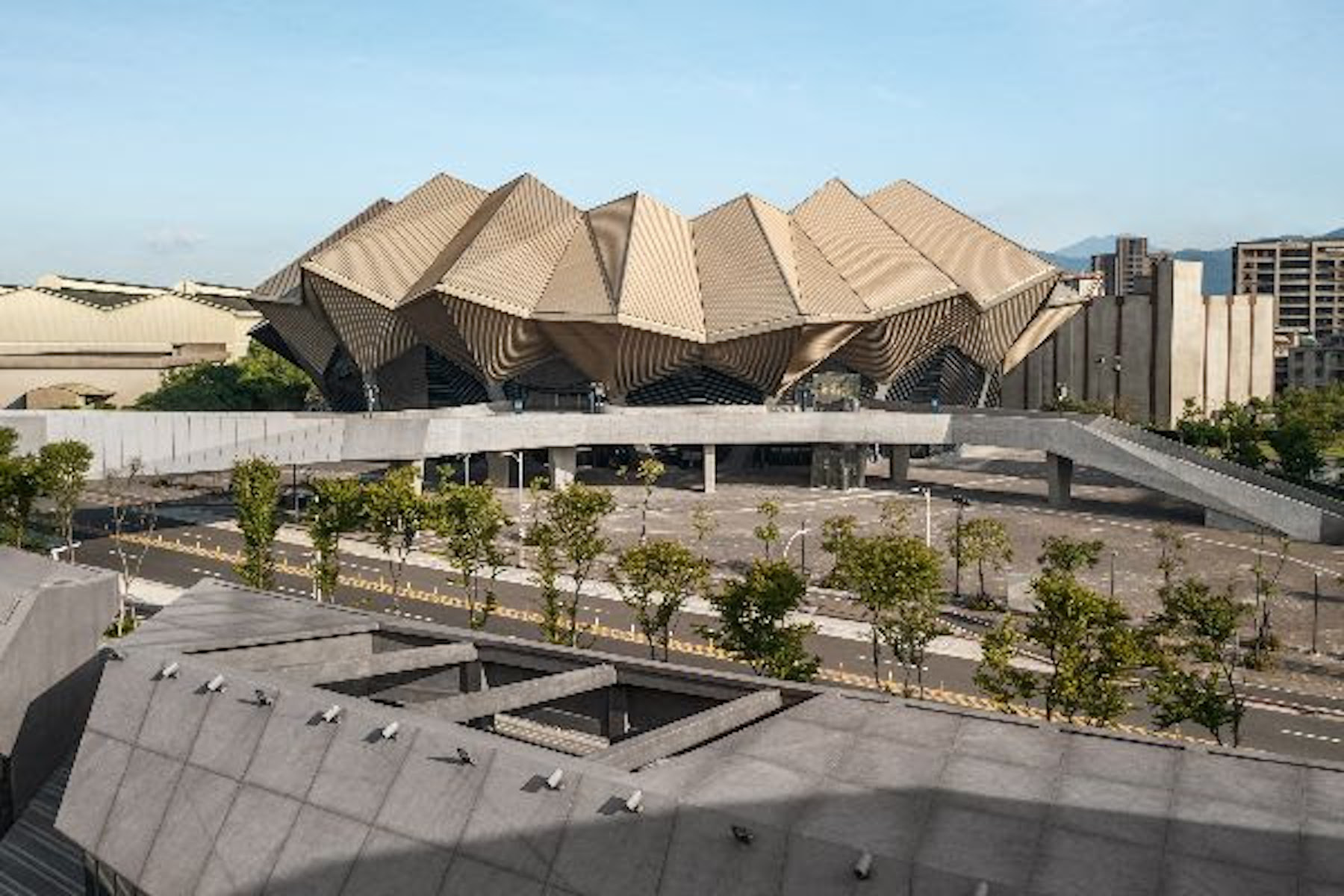
Related Stories
Cultural Facilities | May 15, 2015
Design for beekeeping facility in Tanzania by Jaklitsch/Gardner Architects unveiled
The developers say the center will be an important educational and vocational tool.
Cultural Facilities | May 14, 2015
Szczecin Philharmonic Hall wins Mies van der Rohe Award 2015
The hall is composed following a Fibonacci sequence whose fragmentation increases with the distance from the scene.
Cultural Facilities | May 13, 2015
MVRDV selected to design High Line-inspired park in Seoul
The garden will be organized as a library of plants, which will make the park easier to navigate.
Museums | May 13, 2015
The museum of tomorrow: 8 things to know about cultural institutions in today’s society
Entertainment-based experiences, personal journeys, and community engagement are among the key themes that cultural institutions must embrace to stay relevant, write Gensler's Diana Lee and Richard Jacob.
High-rise Construction | May 6, 2015
Parks in the sky? Subterranean bike paths? Meet the livable city, designed in 3D
Today’s great cities must be resilient—and open—to many things, including the influx of humanity, writes Gensler co-CEO Andy Cohen.
Multifamily Housing | Apr 22, 2015
Condo developers covet churches for conversions
Former churches, many of which are sitting on prime urban real estate, are being converted into libraries, restaurants, and with greater frequency condominiums.
Green | Apr 22, 2015
AIA Committee on the Environment recognizes Top 10 Green Projects
Seattle's Bullitt Center and the University Center at The New School are among AIA's top 10 green buildings for 2015.
Cultural Facilities | Apr 20, 2015
Jean Nouvel loses court battle against Philharmonie de Paris over alleged design ‘sabotage’
Nouvel boycotted the January opening of the facility and asked for his name to be removed from all references to the work.
Cultural Facilities | Apr 16, 2015
Milwaukee’s Lakeshore State Park visitor center will be ‘off the grid’
The plans also include a built-in wastewater treatment system and rainwater collection.
Museums | Apr 10, 2015
Henning Larsen Architects designs timber museum extension in Sweden
The new extension will complement Österund’s wooded surroundings


